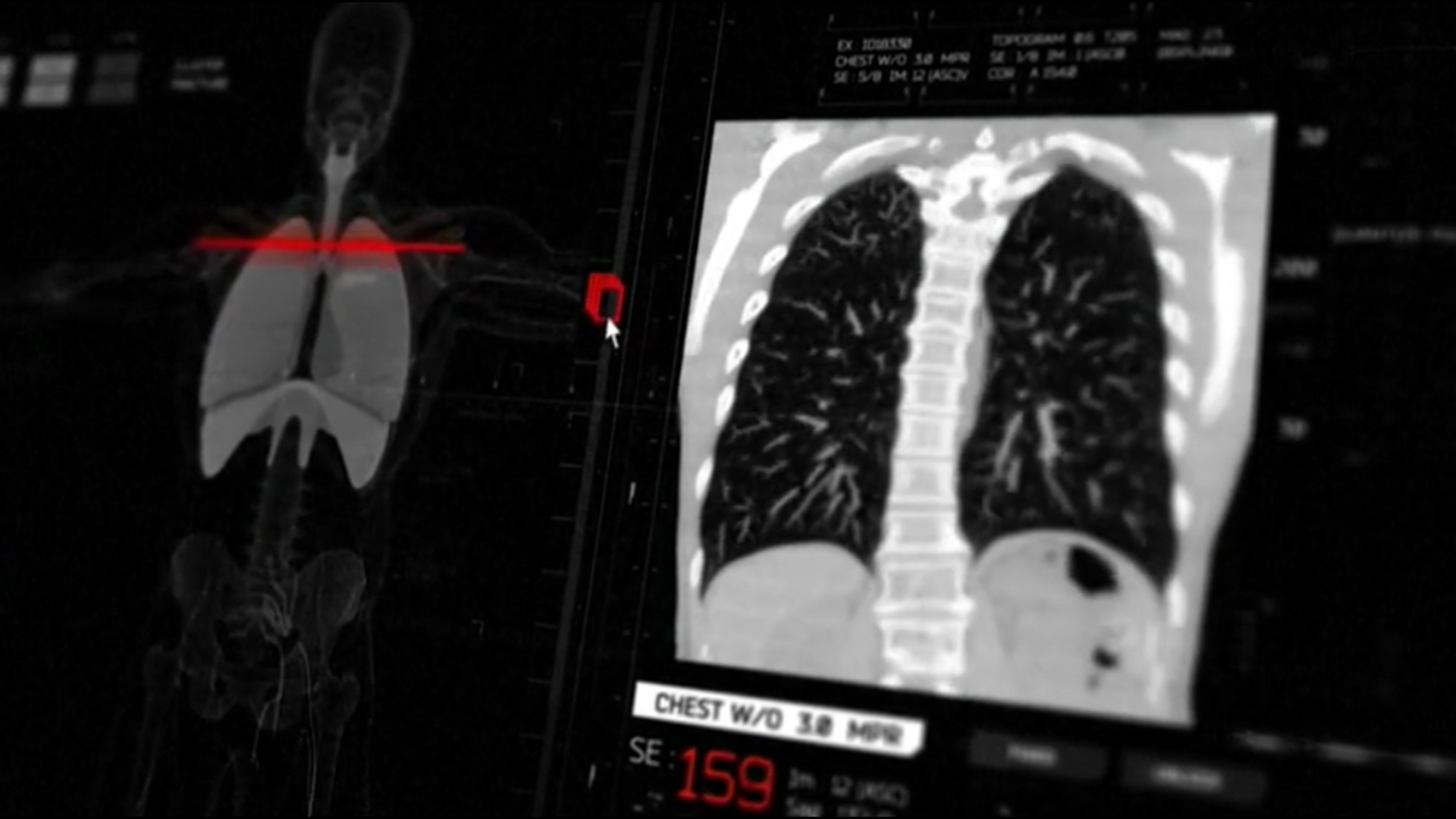NORFOLK, Va. — November is Lung Cancer Awareness Month, and lung cancer remains the leading cause of cancer-related deaths in the United States.
The disease often goes undetected until it reaches an advanced stage. By the time symptoms appear, the cancer may have already spread, which can significantly reduce treatment options.
However, regular screening can catch lung cancer in its early stages before it has a chance to progress. This can make a significant difference in survival rates, but Sentara Health reports that only 10% of people who are at high risk of developing the disease are getting screened.
There are different types of tests available to detect lung cancer, including a relatively simple screening known as a low-dose CT scan.
George Barlow, a former smoker who was diagnosed with non-small cell lung cancer, learned that he had the disease after undergoing a low-dose CT scan last year.
"I would’ve never known that I had it -- [there] wouldn’t have been any symptoms for one, possibly two years," Barlow said. "And by the time there were symptoms, it would’ve been too late."
The scan revealed a small spot on his lung. But thanks to early detection, Barlow's lung cancer was still in its early stages.
"That was, like, in November [2023]," Barlow said. "And December 6th [2023], I was operated on, and it was, like, Stage I. [The surgeon] pulled it all out -- no chemo, no radiation."
Low-dose CT scans are a type of medical imaging that allows doctors to detect abnormalities in the lungs through clear images with minimal radiation exposure.
"CT has excellent spatial resolutions. We’re able to see small nodules really as small as, like, two millimeters," said Dr. Frances Lazarow, a Medical Center Radiologists physician at the Sentara Brock Cancer Center. "There’s no lab requirements that are needed [for a low-dose CT scan] beforehand. There’s no IV that needs to be placed. Just lay down on the table, get the CT scan, and you’re done."
The early-detection tool can catch lung cancer when it's most treatable and is typically performed yearly for people at high risk of developing the disease. Lazarow said the benefits of regular testing are clear.
"Most lung cancers, almost 70%, are diagnosed in a late stage if people are not undergoing screening," Lazarow said. "The latest stages of lung cancer really have a five-year survival rate of basically 10% or less, which is pretty terrible. However, [for] early-stage lung cancer, the five-year survival rate is up closer to like 50 or 70%."
That's why Sentara Health has ramped up efforts to educate patients about low-dose CT scans and its life-saving potential. Experts with the healthcare system hope to encourage more people to undergo regular screening -- which finds more than 50% of early-stage lung cancer cases, compared to about 25% without screening, according to Sentara Health.
Barlow said his story highlights how powerful early detection through low-dose CT scans can be.
"I’m a perfect example. I’m sitting here today," Barlow said. "It’s nothing to be afraid of. I’m scared of shots. I hate shots, but I’d do it to save my life. And that’s what [my doctors] did."
Lung cancer screening with a low-dose CT scan is recommended for people between the ages of 50 and 80 who have a history of heavy smoking. Specifically, people who have smoked the equivalent of one pack of cigarettes per day for at least 20 years are considered at high risk. Those who are still smoking or who have quit within the past 15 years are also candidates for the testing.
Lazarow encourages everyone who meets the criteria to talk to their healthcare provider about getting screened.
"Low-dose lung cancer screening CT has allowed us to improve the five-year lung cancer mortality for patients by about 20 to 39%," she said.
Sentara Health offers several imaging centers, including some that are open on Saturdays to provide more opportunities for people to be screened. Locations include:
- Sentara Careplex Hospital, Hampton
- Sentara Leigh Hospital, Norfolk
- Sentara Norfolk General Hospital
- Sentara Obici Hospital, Suffolk
- Sentara Princess Anne Hospital, Virginia Beach
- Sentara Virginia Beach General Hospital
- Sentara Albemarle Medical Center, Elizabeth City
For more information about low-dose CT scans, eligibility criteria, and scheduling a screening, click here.

